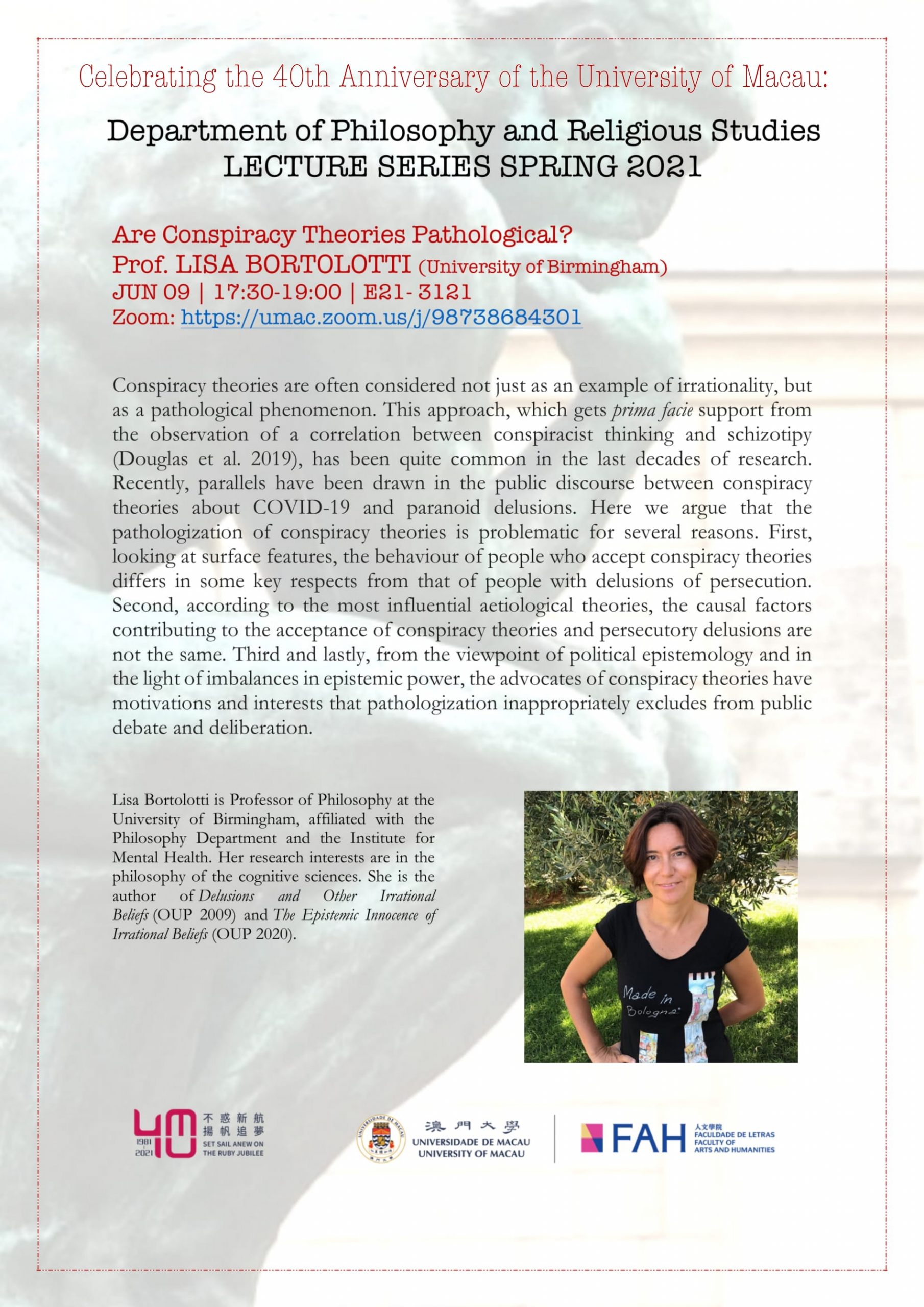

Celebrating the 40th Anniversary of the University of Macau: FAH/DPHIL Lecture Series – “Are Conspiracy Theories Pathological?” by Prof. Lisa Bortolotti, University of Birmingham, United Kingdom
2021-06-09 @ 5:30 pm ~ 7:00 pm
Zoom: https://umac.zoom.us/j/98738684301
Abstract
Conspiracy theories are often considered not just as an example of irrationality, but as a pathological phenomenon. This approach, which gets prima facie support from the observation of a correlation between conspiracist thinking and schizotipy (Douglas et al. 2019), has been quite common in the last decades of research. Recently, parallels have been drawn in the public discourse between conspiracy theories about COVID-19 and paranoid delusions. Here we argue that the pathologization of conspiracy theories is problematic for several reasons. First, looking at surface features, the behaviour of people who accept conspiracy theories differs in some key respects from that of people with delusions of persecution. Second, according to the most influential aetiological theories, the causal factors contributing to the acceptance of conspiracy theories and persecutory delusions are not the same. Third and lastly, from the viewpoint of political epistemology and in the light of imbalances in epistemic power, the advocates of conspiracy theories have motivations and interests that pathologization inappropriately excludes from public debate and deliberation.

